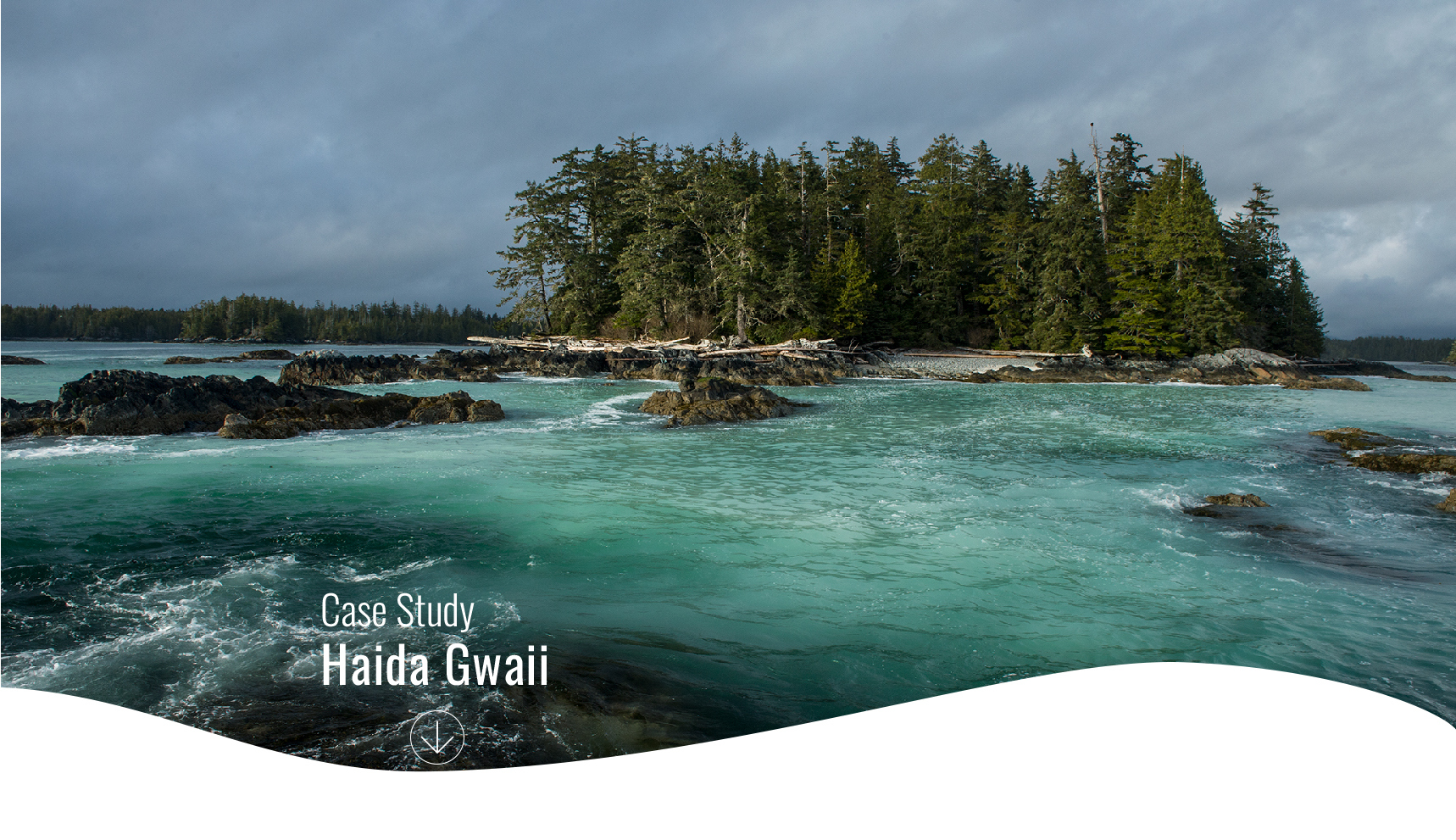Herring in Haida Gwaii
In Haida Gwaii, a remote island archipelago located 100 kilometers off the northwest coast of British Columbia, Canada, Pacific herring are a key forage fish species in the coastal food web and are central to Haida culture and the marine economy. Although nearly 5,000 square kilometers of the land and sea of Haida Gwaii are afforded some protections through the Gwaii Haanas National Park, Gwaii Haanas National Marine Conservation Area Reserve and Haida Heritage Site, and much effort has been dedicated to the preservation of Haida Gwaii’s local cultural and natural features, abrupt shifts in the state of the ecosystem have occurred historically in the region, creating stressors in the social-ecological system. For example, following an intensive herring reduction fishery, a sharp decline in herring stocks occurred in the 1960s. Stocks recovered enough to support a commercial roe fishery up until the 1990s, when closures became frequent. This once-abundant forage fish has been slow to recover from the most recent decline, despite management efforts. This has had significant consequences for ecological and human communities, and has led to tensions surrounding herring fishing among First Nations, the Canadian government, conservation groups, and commercial fishery interests.
While understanding thresholds and the drivers of change is important for managing natural resources, understanding alone is not sufficient and must be accompanied by good governance8,9. Gwaii Haanas’ cooperative Archipelago Management Board (AMB), comprised of representatives from the Council of the Haida Nation, Parks Canada, and Fisheries and Oceans, Canada, has implemented an interim management plan for restoration and protection of the valuable ecosystems of Haida Gwaii. The Ocean Tipping Points team is working with the AMB and other managers, scientists, and community members to develop a better understanding of the drivers, dynamics and trade-offs associated with past and potential ecosystem shifts in Gwaii Haanas and the tools necessary to apply an ecosystem approach to management.
Below we describe how ocean tipping points science can help anticipate and prevent ecosystem shifts in fisheries or restore fisheries systems if they’ve already crossed tipping points, drawing on some of the key lessons learned from our case study focused on Pacific herring in Haida Gwaii, BC.

